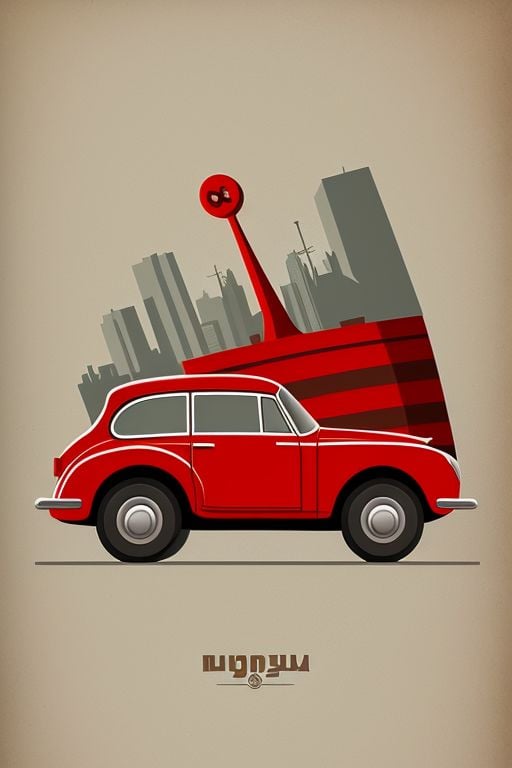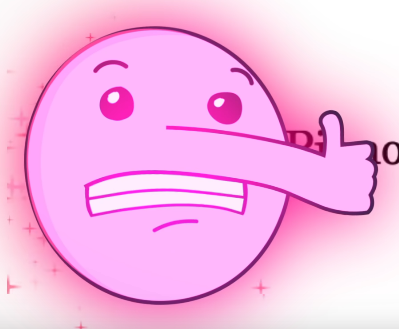It’s been trending this way for years, but seeing it graphed out like this is shocking.
What do you think are the effects of this drastic change?
Having 4 shades of grey as colors in a colored graph certainly is a choice…
The most distinct 8 colours are of course: Red, Blue, Blue, Black, Grey, Grey, Grey, Grey.
That chart must be made by a dog.
They’re all dubious relationships. Only work, friends and online lead to clear, healthy relationships.
/s
Possibly in order to be readable by color-blind people.
I think the online thing is about to start dropping. The sites are so full of looky-loos who just want to chat and never actually meet in person they’re hardly worth the time. I expect as the bot infestation continues to grow, they’ll be even less useful.
There is also the enshittification that intentionally make the sites worse and harder to use… I will never in a million years understand why useful features are removed completely other than “the longer you are stuck on the site the more likely you are to pay for premium.”
POF used to have a section for you to add tags and a function to search by tags. Completely gone. Not even a premium feature. OKC used to have an additional text entry to elaborate on the questions you answer, now completely gone. “do you believe animals have spirits like people” yes or no… No, but that makes me sound like an asshole. I don’t believe either do, but I can’t explain that now… OKC used to let you browse profiles instead of just swipe swipe swipe. Match group bought every successful dating site and absolutely destroyed them to make them all seemingly identical “Tinder 2.0” clones.
I’m not 100% sure on this one, but there aren’t even direct messages on OKC at first, just an “intro” and I’ve seen on women’s profiles they say “I read all my intros.” There’s a tab for intros, so I’m assuming their intros show up there. I’m a guy, I NEVER have had an intro in that tab, but if I happen to stumble on a profile where she sent me an intro it shows up on her profile. Not trying to be sexist, I think they are playing the bullshit game of “men are more desperate and willing to pay so we’ll do what we can to make them stuck here longer.”
POF is even more of a joke now, they are moving more towards streaming and paid rewards… Fucking streamer profiles “not here to date, just here for the streaming.” It’s so absurd what happened to online dating.
A lot of people are ok with tinder or hinge, but I need more information about a person I’m not one of those “unga bunga she pretty, lemme smash” types. I need a profile to read…
“online” doesn’t necessarily mean dedicated dating/match making apps.
The Internet connects people in a way that nothing ever has before. You use the Internet to seek out interests of yours, as will other people. So like minded people tend to meet even incidentally.
I met my partner online, but it was on a game, not a dating service. Neither of us were really looking for love. We became friends, then started dating, and now married for years.
…Even now, though, if we have an argument I shout, “noob! EZ! Uninstall!” and she waits around awkwardly for some moderator to penalize me.
“Do you take this woman, to have and to hold, to draw aggro and tank for, in MSQ and DLC, so long as the NA servers stay up?”
“Roger that”
“And do you take this man, to have and to hold, to heal and to buff, in grinding and in raids, so long as the NA servers stay up?”
“I do”
chockobo music starts
I once moved across the country for a woman I (re)met during a random Words with Friends match. Took us a dozen games before I realized I’d originally met her through LiveJournal, about a decade earlier.
Many years later, my wife moved across the country to be with me, after we met on Reddit. (Clearly the previously mentioned woman was better as a friend.)
Story time?
Met on Elder Scrolls Online, graduated to hanging out outside of the game, picked up some other co op games together, fell in love!
We just always go full circle in the world with almost everything.
some of recognize that and use it to enrich themselves & entrench their positions; a few others who also recognize it decide to use it to try improve humanity’s lot in life; and the overwhelming majority are only vaguely aware at best, call the latter tankies while idolizing the former.
History doesn’t repeat itself, but it does rhyme
Most of the “people” on there aren’t people. They’re either bots or occasionally those looky-loos that are just hired actors to keep people engaged to the site and try and get as much money out of them as possible. Especially the paid dating sites are mostly just that. They’re just sucking money out of people that are genuinely emotionally invested and sometimes even desperate. It’s real sad, and disgusting from those sites.
I think online dating will still remain. But it’s less of actual interest for long term stuff, and more want to have a fun one night stand kind of deal. I feel like most other things on that chart turned into that as well though.
I think the online thing is about to start dropping.
The graph stops at 2020…the height of the pandemic where everyone was stuck in physical, but not virtual isolation.
I agree with you except my guess is that has already dropped if post-pandemic data was introduced.
Totally agree with this. I’ve been on and off the apps for years and they get worse each time I try again. There is a population of people that use dating apps like a game trying to get the high score with the points being likes and matches. It’s just another form of social media at this point.
Removed by mod
deleted by creator
“dating” (fucking) apps: ew ❌
becoming a furry and then dating exclusively within the fandom for a much smaller pool of candidates but that are generally much more intelligent and just as socially awkward as you so the awkwardness cancels itself out: ☑️
My first unofficial bf (really early in my teens) was a normie, and when that collapsed I went furry-only for relationships, never looked back. Had some amazing relationships due to it. The intelligence bar is much, much higher, so when you get into a conversation, it’s a deep, insightful, intriguing topic. My ex, he has adhd, autism, and several other quirks, and I could listen to him talk about stuff for hours, literally. The excitement he got from discussing something he was interested and passionate about, made topics I know nothing about and/or care nothing about, interesting; and I would always learn a nugget or two of information. And because furries are typically all weird as fuck, nothing is really weird. It’s liberating to just speak your mind without being worried about being judged or criticized.
I tried to dip my toes into the traditional dating/hookup apps a decade or so ago. Assholes as far as the eye can see, nothing meets their standards and they will demean you because of it. Fuck them all, and not in the fun way.
Also the pandemic is over so people are allowed to meet outside
Why do you assume people are meeting on dating apps? I met my spouse in VR chat, and a few others I’ve had relationships with I met as mutuals on a Discord server… Online isn’t necessarily Tinder
I’m sure off loading the human mating ritual to profit driven companies will have no negative effects on society whatsoever, this definitely isn’t the horrors here to unseen except in the most dystopian of science fiction novels.
Is there anything we can’t privatize for profit?
Can’t privatize individuals’ bodily functions, but you can enshitify the experience of all senses, “Want to turn off the lights at night? That’s 5 dollars per hour. Want to enable the flush of your toilet? That’ll be 7.50, thank you. In order to remove the noise from your apartment, please pay the subscription. If you want to get rid of ALL the noises, pay the diamond premium sub!”
Want to turn off the lights at night? That’s $5 per hour.
And of course you will pay $6 per hour to keep them on, gotta squeeze 'em at both ends after all.
No no no, you’re doing it all wrong. New toilet $200. Or get this one day only special offer New toilet 3 easy payments of $10.99 plus heated seat and Butt Blaster Bidet TM with annual subscription of just $40 per month!
Technology has found a new way for people to meet up and fuck, a thing that they had older and less efficient methods of doing in the past. What is the consequence of high-speed fucking? Fortunately, with the advent of contraception and prophylactics, I would say not much.
The means of communication have changed, but the innate human impulses and behaviors remain the same.
this definitely isn’t the horrors here to unseen except in the most dystopian of science fiction novels
What is the fundamental difference between dudes cruising for sex in bars and nightclubs during the 1980s and dudes cruising for sex on grinder in the 2020s? What is the difference between speed dating and Tinder? What is the difference between high schoolers / college kids sexting and getting each other off over the landline?
Humanity has survived worse indignities.
Did you know, one of the biggest differences humans have from other animals is that they are of the first if not the only species to weaponize Evolution?
And by that I don’t necessarily mean against each other but other species, the cow we breed to be larger and more docile for better food, the dog we breed to be a better hunter and less aggressive, but we also breed it to it’s own detriment simply because it’s “ cute”., corn, tomatoes, melons … we breed or clone to be so big that it would be eaten to extinction if we didn’t use chemicals to Deter pests, not to mention the fact that most produce don’t even produce there own seeds anymore.
All to the detriment of anything humans cultivate, most of this was done subconsciously before we even knew what Evolution was and not out of malice but simply because it benefits the farmer.
If we give beading selection of any species including humans to humans within a very few generations they will start to show traits beneficial to the people selecting the traits, and no amount of “I’m not going to date someone I’m not interested in” will save you, after all Evolution is a tendency and outliers just do not matter, we are animals and it is more beneficial for corporations that are profit motivated to breed docile obedient stock that doesn’t complain.
You should check out Against the Grain: A Deep History of the Earliest States
This kind of symbiotic selection is not necessarily exclusive to humans or even animals generally speaking.
I’m sure I would agree with everything in the book, I have never read it personally but I have heard arguments and summaries about it, , it is one of the most depressing things to think about but I am pretty sure it helps my point not disproves it.
Essentially the first civilizations shaped the early evolution of mankind forcing them from a hunter gatherer society(violent and unruly) to a agrarian Society(docile and submissive) you can argue all you want about the benefits of these traits or even the necessity of them but you can’t argue that these forces are not at play and in full effect when it comes to dating apps, I personally find it disturbing but the fact that we are breeding a serving class isn’t nearly as disturbing as the fact that we are breeding a ruling class at the same time and we have every potential to separate into two different species.
it is one of the most depressing things to think about
I wouldn’t go that far. Its a trade off - predictability over longevity - that proved fruitful in the long run.
But, read from a certain perspective, it can be argued that grain domesticated humans and became one of the most prolific organisms on the planet as a result.
I think this graph is fake. The way the data is presented is confusing, but the study they are citing doesn’t seem to confirm anywhere close to the 60% figure, it seems to be saying 11.5% instead: https://www.icpsr.umich.edu/web/ICPSR/studies/38873/datasets/0001/variables/W1_Q24_MET_ONLINE?archive=icpsr
This lower figure also seems to line up with other studies: https://www.pewresearch.org/short-reads/2023/02/02/key-findings-about-online-dating-in-the-u-s/
One-in-ten partnered adults – meaning those who are married, living with a partner or in a committed romantic relationship – met their current significant other through a dating site or app.
The graph is branded with the logo of “Marriage Pact”, which seems to be a dating app/service targeting college students. Maybe they made it as a form of (deceptive, unethical) advertising? I don’t know, reverse image search just shows similarly unsourced social media posts, I can’t confirm anything about its origins.
but the study they are citing doesn’t seem to confirm anywhere close to the 60% figure, it seems to be saying 11.5% instead
I think you’ve linked the variable of all couples regardless of when they got together. If 11.5% of all couples met online, whether they met in 2023 or 1975, then that doesn’t actually disprove the line graph (which could be what percentage of couples who met in that particular year met through each method).
The researchers who maintain the data set you’ve linked published an analysis of the 2017 data showing that it was approaching 40% towards the most recent relationships being formed, in 2017. I could believe that post-covid, the trends have approached 60%.
It could be that. I’m noticing now that the study I linked has a note about a sampling error they made:
Self-identified LGB adults were oversampled in HCMST 2017, and therefore remain oversampled in subsequent waves (2020, 2022). the weights (W1_WEIGHT_COMBO, W2_COMBO_WEIGHT, and W3_COMBO_WEIGHT) correct for this oversample.
So another possibility is that the data used for the graph is wrong because of a big correlation between sexual orientation and preference for online dating and it was made before this was corrected.
I don’t think the figures are intuitively implausible, mostly I’m just bothered by the apparent lack of any way to confirm the authenticity of the graph and its relationship to the source material, or get an authoritative answer to the question of how prevalent online dating is.
One reason to doubt them though, the other article I linked says that as of 2022
About half of those under 30 (53%) report having ever used a dating site or app
Which is the demographic that uses them the most. So it doesn’t make sense that more people would have met their current partner through a dating app than have ever used one.
About half of those under 30 (53%) report having ever used a dating site or app
Yes, but that’s a bigger denominator, and includes single people, and even those who have never been on a date. The headline question is what percent of couples met through different methods, not what percent of individuals, including those who are not currently in a couple.
So it doesn’t make sense that more people would have met their current partner through a dating app than have ever used one.
It could be that a higher percent of couples met online than the percent of people who have ever used online dating. If you have a data set where online dating is literally the only way to meet people, but only half of the people are trying that method, you’d have the situation where 100% of couples met online but only 50% of people have ever tried online dating (this hypothetical is purely to demonstrate the math, not claiming that this is in any way a reflection or the actual data).
It’s entirely possible (and I’d argue is likely) that the 53% who have used dating services are more likely to be in couples than the 47% who haven’t. And so that larger subset of the 47% would therefore be excluded in the “percent of couples” data.
mostly I’m just bothered by the apparent lack of any way to confirm the authenticity of the graph and its relationship to the source material
The 2019 paper I’ve linked is authored by the maintainers of the linked data set, and contains a very similar graph with an earlier cutoff (2017 data). I’m sure those authors know their data set. It’s just most of their papers using this data is paywalled, and the data is mainly used for other types of analyses.
If I have time I might be able to download the data set from a computer and just map it either naively or by applying the correct weights.
The graph in that linked paper is convincing to me. I wonder about the discrepancy in the line for Met in Bar or Restaurant though, the 2010 upward trend in that is totally absent in the OP image.
I wonder about the discrepancy in the line for Met in Bar or Restaurant though, the 2010 upward trend in that is totally absent in the OP image.
The caption for OP’s image says that stat was “cleaned up” to adjust for people meeting online. That could mean that some survey respondents met online and decided to meet in person in a bar or restaurant, and answered yes to both questions, and that those couples should be counted as “online” only.
Or it could mean they were actively swiping while at a bar or restaurant and looked up to see matches they’ve been recommended.
About half of those under 30 (53%) report having ever used a dating site or app
Which is the demographic that uses them the most.
Do you have a source for this, or is it just speculation?
The pewresearch link in my other comment gives a breakdown of percent having ever used a dating app by age cohort
The last part doesn’t mean that. It’s 53% of the whole population under 30. Could be a higher percentage of the ones having a partner/married. Since the total is smaller if you just take the ones having a partner. Removing the ones still single/didn’t meet anyone.
Right, I get that it doesn’t strictly rule it out directly, but it’s a surprising discrepancy. That 53% is just for under 30s too:
compared with 37% of those ages 30 to 49, 20% of those 50 to 64 and 13% of those 65 and older.
while the purported figure for people having met their partner through an app is for all demographics. The number of people who are partnered vs single is 70%. If 60% of those met via dating apps, that’s 42% of the total. Which seems probably still more than the number of people who have ever tried them, and that would only check out with the absurdly generous assumption that those apps have a near perfect success rate and almost no one who uses them goes back to other methods.
The number of people who are partnered vs single is 70%. If 60% of those met via dating apps, that’s 42% of the total.
You’re still not slicing thin enough.
If 60% of the couples who got together in 2022 met on dating apps, and people who got together in 2022 constitute 5% of all couples, that’s still possible (and probable), then those couples will still only be 3% of the total. Pretty easy to add up to 11% that way when you start including all the 10-year-old relationships, the 20-year-old relationships, etc.
If it were flat at 60% for all years then no, it wouldn’t add up.
But if you look at the area under the curve, it’s still pretty small comparatively speaking because it’s such a recent phenomenon. (And not every year would actually count equally for the whole data set, but it’s displayed in this chart as every year adding up to 100% for its own year.)
Ah, right
Thankyou for digging past the headlines and showing your findings. No one has the time to do it all the time but together we can.
I think the difference is that variable is the entire population of coupled adults. Of course not 60% of all couples met online, but I’d believe 60% of couples that met this year met online.
I’d believe 60% of couples that met this year met online.
I think there’s a question of denominator, rather than percentage, involved here.
What happens when you have a pre-online standard of 100 new interactions a year in a population of 100k single-and-looking-to-mingle daters. Then you introduce dating apps, and you’ve still got the base-load 100 new interactions happening normally, but now you’ve got apps which allow you to make thousands of interactions a month rather than a hundred a year.
Now a hundred of those power-users on Grinder all start meeting up and fucking online. 100 unique combinations gets you 4950 “couples that met” in a year. Yeah, the “met up” only lasted for the duration of a naked high-five, but its points on the board!
Compare that to 100 couples that meets outside the app, but are doing it at the more stately pace of once-a-month (so, 3 times in 100 days). rather than as fast as they can swipe through the app. 300 unique “met ups” by comparison. Kinda high by historical standards but infintessimal to the ass-slapping orgy of dating the online community allows.
As someone who watches friends on these apps go on dates two or three times a week, but never settle down (because the focus of these apps is hooking up, not settling down, and the system is engineered to keep you engaged and swiping) I put forward the hypothesis that “How Couples Met” isn’t seeing a decline in non-app interactions but an enormous surge among a particular rarified group of power users milling their way through the library of potential hook-ups online.
I’d also posit that some number of these hook-ups are purely artificial (bot accounts, catfishing, onlyfans promotions, or other phony profiles) that exist purely to encourage lonely people to engage with the system and don’t actually signify human-to-human interactions. As evidence of this, I’d point you to restaurants using dating apps to dupe users into becoming customers.
See, I will agree with you, though not because of your reasoning (which very well might be spotless), but because of the phrase “ass-slapping orgy”.
(**edit: I had accidentally grabbed a graph about same-sex relationships without realizing it and have removed.)
Unclear what study that is referencing, but it’s notable that Michael Rosenfeld is also the first listed principle investigator in the study referenced in the OP, likely part of the same project, since they list updates for every few years (How Couples Meet and Stay Together (HCMST) 2017, 2020, 2022, United States). Also unclear who compiled the graph or where it was originally published. I want to reiterate that this study itself seems to very much not line up with the graph, unless I’m misreading it very badly.
The BBC article is about a book, Modern Romance, and the book makes a claim that 35% of Americans met their spouses online (“respondents who married between 2005 and 2012”). This checks out with the cited source study, which makes an identical claim, though there’s reason to be suspicious of it since it was funded by eHarmony. The scope there is a little different than “all couples”, but it’s still a very different number than what is in either this article’s graph, or in the OP graph, which are very different from each other as well (saying the number reached 70% by 2009 vs saying it reached 60% by 2020. I would think that if these graphs are genuinely based on research by Michael Rosenfeld that they would at least check out with each other.
Here’s what I think is probably going on here: people working for the marketing departments of dating apps fabricate bogus graphs, falsely attribute their source to real studies, and push them on social media to go viral. Then people writing articles like the one you linked about the subject copy paste those images without checking them, because it’s just a fluff piece for a recently published book and they don’t have much time to spend on it.
Where did you originally find the OP image?
Edit: Just noticed that the second graph is specifically about same-sex couples.
Sorry for removing the comment you just replied to. I didn’t realize I had grabbed the wrong graph from the article.
You could be right. I believe I found the original image circulating on reddit or tumblr (it was a few days ago).
I haven’t had the opportunity to read your link directly to the study yet.
This is for same sex couples which for a large variety of societal reasons likely wont reflect the dating scene among the average population, which skews heavily hetero.
Oh shoot, you’re right. I grabbed the wrong one. I was just looking at the dates.
The hetero graph in this article only goes to 2009, so this whole article probably isn’t too helpful. I’ve removed. Thanks
deleted by creator
That’s totally not it for me. It looks fake, but for me it was when this shit starts. A few percent got together in 1980 / early 80S?! Now I vaguely remember the 80s and the “internet” from then. I can’t imagine any got together from “online dating” then or the internet overall. Do you have a concept of what “internet” was then?
I mean that would’ve been the time of BBSes and email so probably a few people met partners online via shared interests and later met up in Meatspace. BBSes particularly had a tendency towards local connections since phone calls were expensive outside of the local exchange (area code)
I’m from the south, what about family reunions?
In Alberta that’s cool.
I want to know which couples were meeting online in 1980.
Nerds.
Bulletin board systems (BBS) go back to 1980. Men have tried everything to get laid since the dawn of humanity. It checks out.
As someone who was using BBSs by 1984-ish, I can believe that people met this way. What I can’t believe is that it was at a percentage high enough to be represented as anything above zero on that graph.
agreed. the first Arpanet message was sent in 1969, the first BBS in 1978. but shouldn’t move this needle for many years.
I think this is the data collection info: https://data.stanford.edu/hcmst2017
The data are nationally representative, as the Ipsos KnowledgePanel recruits subjects into the panel by by Address Based Sampling, and subjects without Internet access at home are given Internet access.
…
Response rate was 3510/6753=52% in 2017, 2107/2431= 87% in 2020, and 1722/2073=83% in 2022.
Half of all randomly selected subjects (by address) responded to their survey? I’d need to read a bit more about what exactly is going on there.
Meeting online before Internet:
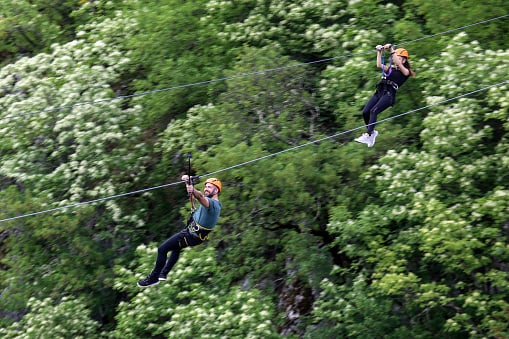
“sorry, I got kicked offline temporarily”
“Ouch! Are you okay?”
Scientists probably.
They probably meant in line, like at Kmart or whatever other stores were still open then.
Back when it was called “computer dating” and people printed dot matrix pages out with their interests.
University nerds with early access to early forms of Internet would definitely never utilize such serious world changing technology to chat and dawdle amongst themselves to the point a connection would form. It’s not like the entirety of video gaming was created by a nerd severely misusing an extremely expensive oscilloscope.
Not quite the 80s, but I met my wife online in ‘93 or ‘94. Initially it was just a passing conversation a few times. We met in earnest in ‘95. She does not remember the initial meeting, we were both using different screen names.
Don’t be jealous that I’ve been chatting online with babes all day.
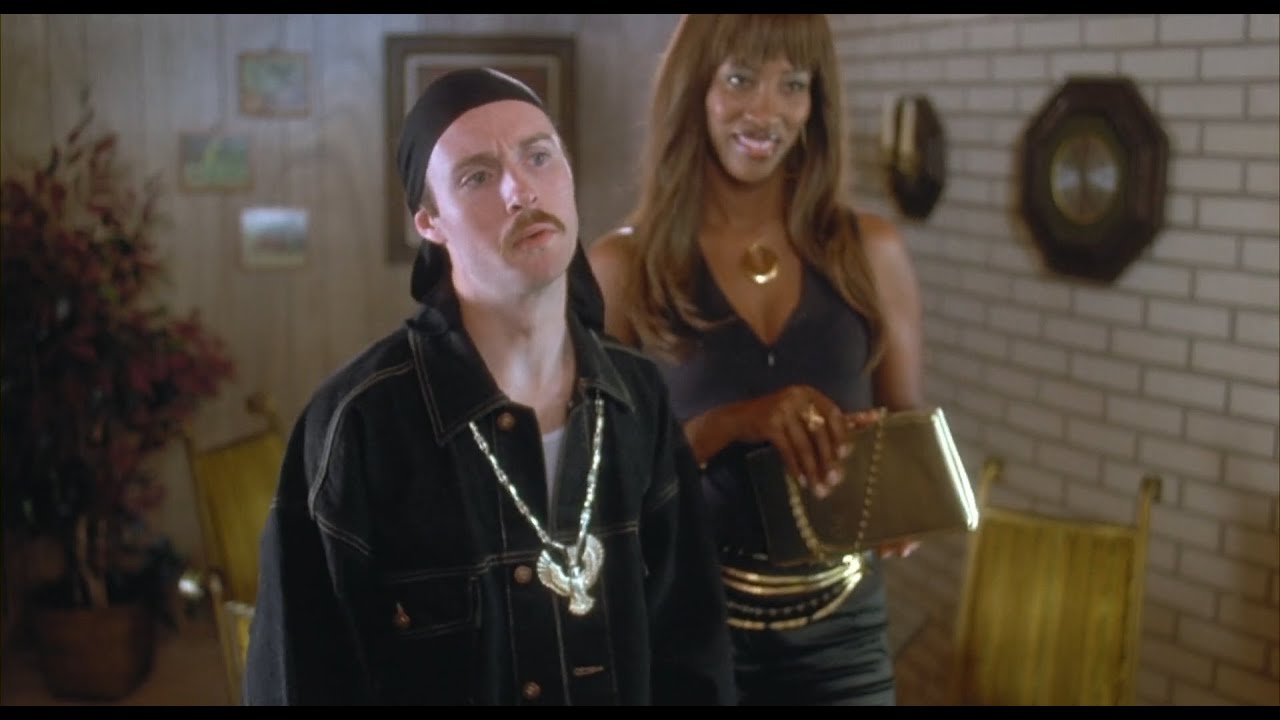
A lot of people here are too young to get it, but work being a captive dating scene for skeezy shameless assholes is a million times worse than online dating.
It doesn’t split, but I’d guess 99.9% of those online meets are dating apps (rather than other ways of meeting online).
That’s kind of sad, not because there’s any one way people should meet, but because meeting people is now mostly mediated through for profit companies.
You didn’t meet your spouse on World of Warcraft?
I feel called out lmao
I’d honestly be very surprised if that was the case. There’s so many different ways to interact with people online that I expect dating websites to make up a majority, but there’s probably like a 45% spread of things like social media/forum communities, online games, etc. All the kinds of things that used to be done offline (like meeting people through DnD at the local hobby shop) but can be done online or have become largely online thanks to the commodification of existing in public spaces. Shared interests are a great start to a relationship.
Hell, I’d love to see a breakdown of the percentages just to see how many relationships start from 3rd place games like Second Life and VRChat.
For me, the big question isn’t what are the effects, but rather, what is the cause?
I see this as an effect of something else that other effects of could be mistaken as symptoms of this here.
Basically, the destruction of third spaces and public life in general has caused an increasing number of people to find relationships (both romantic and platonic) online because they no longer have the opportunity in their daily life. That, and the increased ease of long distance relationships and meeting people from far away means that people are probably more likely to have the opportunity to fall in love with somebody outside of their tiny corner of the world.
speaking from my own personal experience. options for dates were lackluster and I couldn’t get what I wanted out of the relationships I had so, I looked elsewhere.
especially in small rural communities where the opportunities to expand your experience in mature relationships. most the dates I had were, “let’s get wasted and fuck on this dirt road” or “let’s get drunk around the bon fire with all our friends and go fuck in the woods”. sound nice, but if it’s the only option every weekend it gets old.
I wanted a personal connection to someone outside of getting drunk and having sex, others are fine with it.
The last really serious relationship started by meeting at a bar.
It was great because there was no expectations when we first started talking so the conversation was just natural, just two people talking. We exchanged numbers and soon started dating. I really think that it worked was because it was just an accidental meeting and we were both relaxed and had no ulterior motive.
I also think because dating in the wild there are fewer filters and few options, so you go with what you got. They may not be perfect but it’s better than sitting around swiping for the perfect person that may not exist.
They may not be perfect but it’s better than sitting around swiping for the perfect person that may not exist.
I actually appreciate having information on personality, background, hobbies and dating intentions up-front, rather than play a guessing game for hours or days.
When I was dating in the late 2000’s and early 2010’s, I remember adding dates as friends on Facebook, somewhere around the first date, specifically to be able to get a sense of their personality/background/interests, and to show off mine, even for people I met in person.
It wasn’t online dating through a dating app, but online presence was still a huge part of the actual process.
Even before that, in the early 2000’s, I remember stuff like AIM profiles that could at least link to photo albums that show off things that you’ve done recently. And even then having always-on broadband Internet, to where we’d be logged into AIM or ICQ, was its own flex.
Yes. There is nothing bad about having some more information up front, but in my experience some people will describe themselves as they think others want to see them and not always who they are. In which case it can take a few hours, days or even months before you really start to see who they are.
Yup. I’m an awkward fellow but still have far better results approaching people in bars than on apps. People on apps are constantly pursuing the perfect match (including their perfect match) so everyone is collectively disappointed.
The collapse of society, visualized.
Explain your thesis.
/c/dataisdepressing
I don’t understand it so it must be bad.
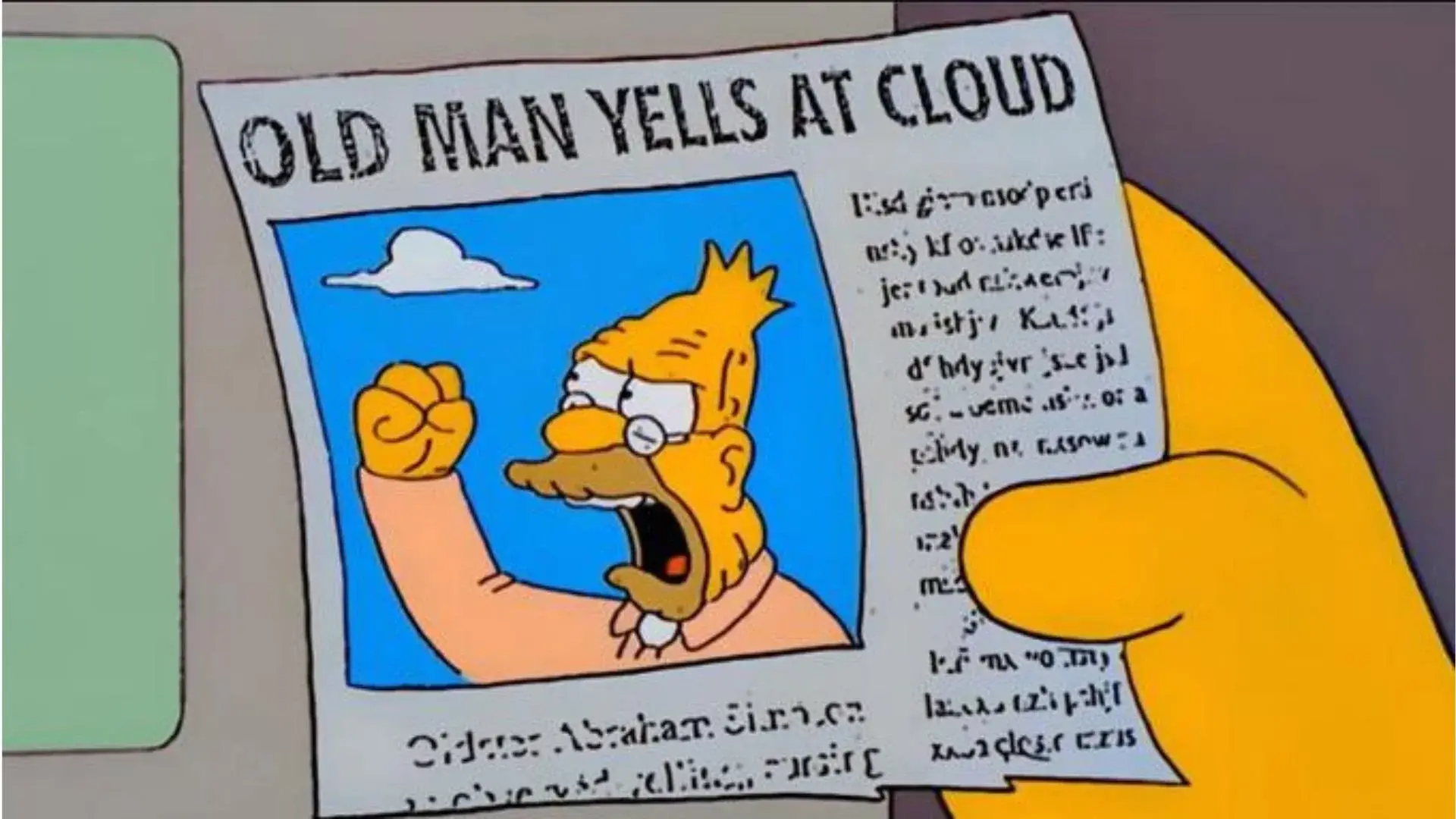
Wrong thread or phone bad?
I wish there was some granularity to “online.” I met my wife on a BBS in 94. It wasn’t a dating site, it was a discussion board, and neither of us was looking to hook up with anyone. There are lots of things like that, but I’m guessing dating apps/sites are the biggest component.
The number of people that met on BBS would probably not even register as a line on that graph, lol. You are a rare gem, good sir or madam.
I wasn’t meaning to say that my situation itself was representative, just that most people see that line and think dating sites, and that’s probably not completely correct. There are lots of online venues, like games, that aren’t dating sites, but I didn’t know what the breakdown is.
People who randomly throw out acronyms expecting everyone to know them are TEBM.
Honestly, WoW would be a not insignificant chunk of people that met online if it was split up into more granular data.
I bet you’re right, and significantly more if you included online games as its own subcategory.
Awesome. Met the wife on IRCnet, shortly after the great split.
Is it just me or is that graph all fucked up?
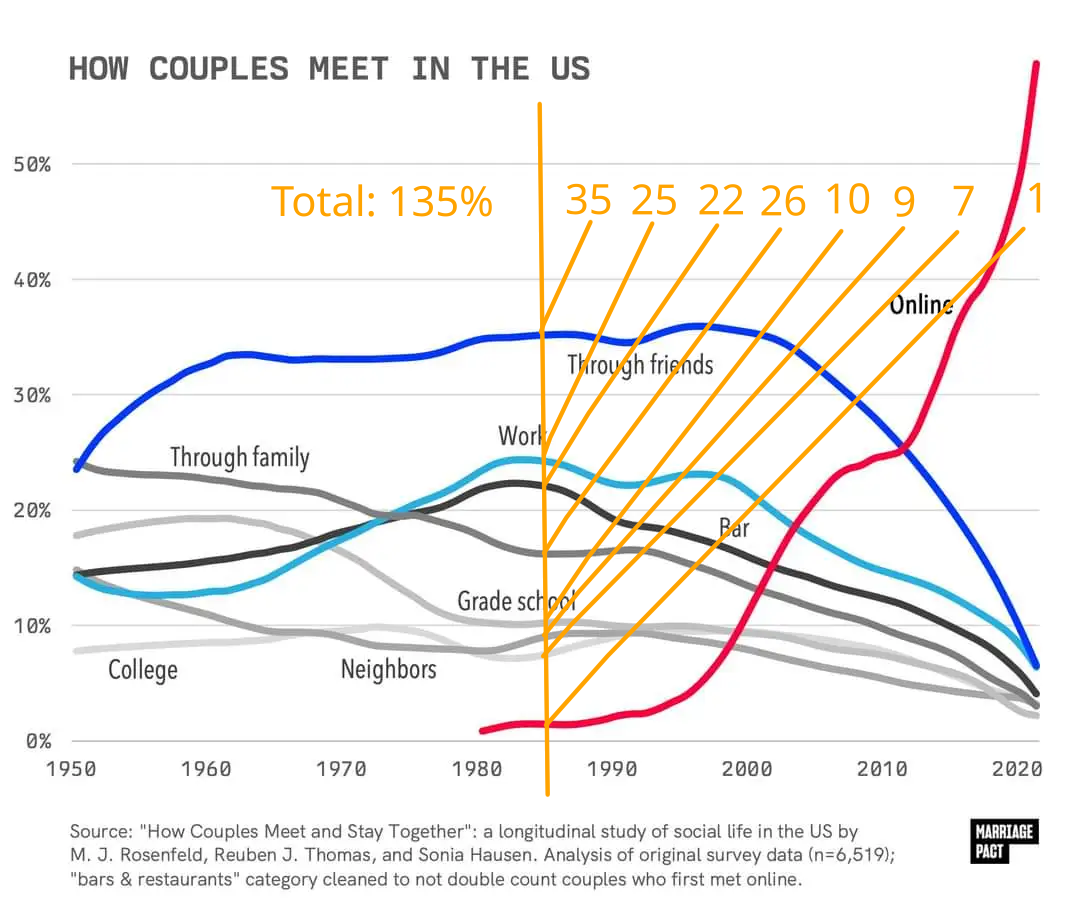
Well theres more then 0 percent that do meet multiple people throughout the year. So maybe still bullshit, but its a thought.
Definitely. This graph is how folks on Grindr hooked up.
(Not intended to be homophobic but just poking fun because gay men in general are known to have more hookups than straight or lesbian folks)
deleted by creator
I remember being in highschool in the late 90s/early 2000s and someone found out I had an online dating profile.
I was relentlessly teased about it, borderline bullying.
I eventually met my current wife online, couldn’t be happier.
looking back, the teasing was likely because I was the only genuinely nice guy those girls knew and were upset their choices for dates were abysmal. it’s all for the best though, I wouldn’t have wanted to be around anyone who could treat me that way and be ok with it.
I’m pleased that the stigma against online dating has all but vanished.









